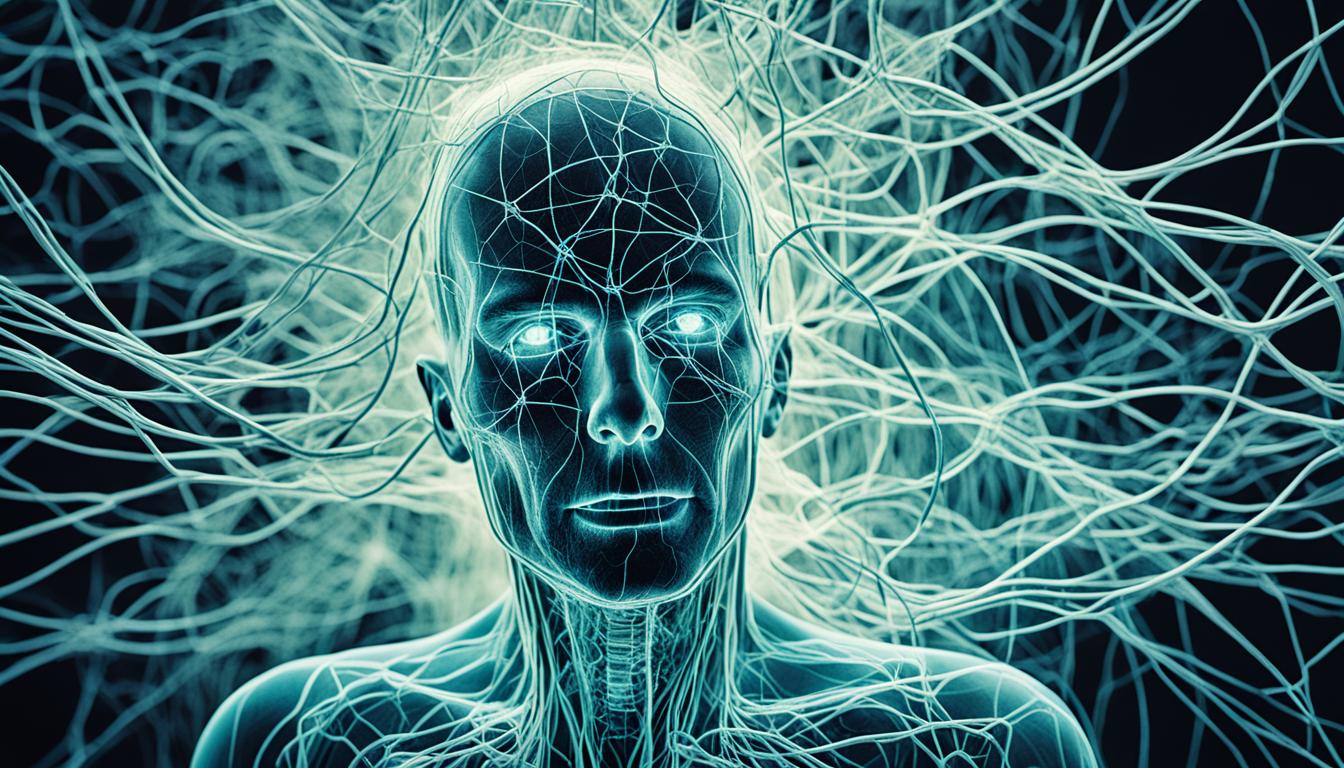Functional neurologic disorder (FND) is a type of neurological disorder. It doesn’t involve significant brain damage. The cause of this disorder is unknown, but is linked to brain function problems rather than being a psychological issue that turns into a neurological one.
In Thailand, many people might have FND symptoms. These can be from mild to severe. Symptoms include muscle weakness, tremors, seizures, and gait problems. FND can affect daily life and quality of living.
Diagnosing FND can be hard since there isn’t a specific test. Doctors look at medical history and do exams to process of elimination. Tests like brain scans may be done to understand brain activity better. This helps rule out other neurological disorders.
FND has no straight cure, but treatments help manage symptoms and aid functionality. Physical, cognitive-behavioral, and occupational therapies can help. Stem cell therapy is also being researched for its potential benefits in FND treatment.
Key Takeaways:
- FND is a group of neurological disorders caused by brain function issues.
- It’s hard to diagnose FND, so doctors rely on history, exams, and tests to rule out other issues.
- Treatments for FND include various therapies and sometimes stem cell therapy.
- FND can greatly impact how someone lives and their quality of life.
- Research is ongoing to understand FND better and find new treatments.
Diagnosis and Treatment of FND
Diagnosing FND is hard because there’s no single test. Doctors look at a person’s history and do different tests. These include looking at the brain’s activity and other neurological disorders. Video electroencephalography can find PNES.
Treating FND involves many types of help. People may get therapy like CBT for the mind, and physical therapy for the body. These can help with symptoms.
Doctors might give medicines for pain or to stop seizures. But, there’s no pill to cure FND itself.
Groups and counseling can also be really helpful. They let people share their stories and learn new ways to cope.
Handling FND needs a team effort between patients and their doctors. Working together on a plan tailored to the person is key. Regular check-ups and ongoing care are very important for a better life.
Latest Updates on FND Research
Scientists are working hard to learn more about functional movement disorders (FND). They want to understand how these disorders are linked to the brain and other health issues. The National Institutes of Health (NIH) is funding studies that look closely at the brain using neuroimaging techniques like MRI.
Neuroimaging is key to showing brain problems that cause FND. When researchers check the brain activity of those with FND, they get closer to finding out the exact reasons. This can help doctors know better how to diagnose and treat these disorders.
COVID-19 has made life harder for many people, especially those with FND. It brings extra stress and problems which might make FND symptoms worse. By studying how COVID-19 and FND interact, researchers hope to learn more about the role of stress and other outside factors on these disorders.
FAQ
Q: What is Functional Neurologic Disorder (FND)?
A: FND stands for Functional Neurologic Disorder. It’s also called conversion disorder or functional neurologic symptom disorder. It causes group of common movement issues that don’t come from major brain damage.
Q: How is FND diagnosed?
A: Figuring out if someone has FND is hard without a single test. Doctors look at a person’s history and do exams. They use tests like imaging scans to check brain function. Video electroencephalography can help diagnose PNES.
Q: What are the symptoms of FND?
A: FND shows up in many ways. People might have muscle weakness, tremors, or trouble swallowing. They could also have speech issues or seizures that aren’t caused by epilepsy. These symptoms don’t follow standard neurological patterns.
Q: What causes FND?
A: The exact cause of FND is not fully known. Scientists think it’s more about how the brain works, not turning a psychological issue into a neurological one. There’s ongoing research to learn more about FND.
Q: Is there a specific treatment for FND?
A: The treatment for FND changes for each person. It might include things like physical and occupational therapy, counseling, and medicines. There’s also interest in using stem cells, but more studies are needed.
Q: Are there any recent updates on FND research?
A: Yes, research on FND is active. The National Institutes of Health are funding studies on its causes. They’re using advanced imaging to look deeper. Plus, scientists are checking how the COVID-19 pandemic might affect those with FND.

